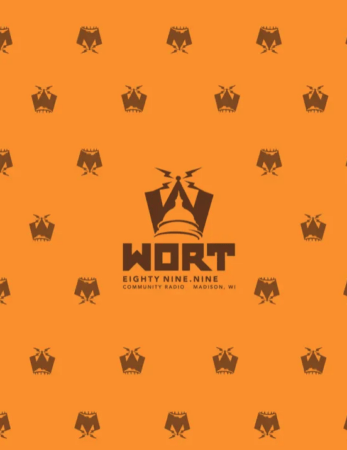Rich Samuels
Classical Music Host at WORT 89.9
Digital killed the radio star
Rich Samuels is the host of a classical-music show on WORT 89.9 FM, a radio station out of Madison, Wisconsin. He’s also a former reporter for multiple TV stations in Chicagoland, where he covered politics, education, business, arts, and sciences.
However, Samuels’ first love was music. He was an instrumentalist from the fifth grade onward, picking up the clarinet and saxophone before eventually arranging his own tunes.
By the time college rolled around, Samuels found some success playing in weddings — but he never thought he had the talent to become a professional musician. He decided to pursue a career in journalism instead.
After retiring from broadcast news, Samuels returned to his original love.
By Bill Meincke
I knew that when I retired I was going to do some kind of volunteer work, and it was a question of whether what I could do would be both a value to the community and rewarding for myself. WORT is what it turned out to be.
I’m doing something for the community. I provide entertainment for those who listen, and I also provide an outlet for the local musicians and the local institutions that support them. I’m always looking for opportunities to record local classical musicians and to keep myself busy.
Classical-music programming has always been a challenge. WFMT is one of the only, if not the only, station in Chicago now. In New York, I believe that there’s only one full-time classical music station, WQXR. It was formerly owned by the New York Times but is now owned by New York Public Radio, which at one point was owned by the city.
Some stations have even done away with the AM band altogether. That’s where a lot of classical-music stations resided. Now, AM in this country survives largely in markets like right-wing talk shows.
The Volume of Dedication
Journalists are hesitant to get into radio broadcasting anymore because it’s not a tremendously money-making business unless you get to the top.
We don’t get paid for what we’re doing. There’s a small paid staff at the station, but a majority of people at WORT are volunteers. It’s the kind of radio station that could only thrive or survive in a place like Madison, where there’s a particular demographic for classical music. WORT is pretty much every kind of music that you can imagine, plus news and talk shows.
It’s not something that could be replicated on a commercial model. WORT has been recording emerging musicians and giving them a chance to have their artistry heard. It also gives them an opportunity to talk about it because at some point, artists have to learn how to sell their performance.
But as long as the digital-rights-management issues can be resolved (in other words, compensating composers and performers for their work), I think digital is clearly the future.
Money Matters
We get contributions from people who are listening online, and from people listening in different continents. People are listening digitally. That’s why we developed a WORT app, so that you could listen easily on a mobile device or a tablet whenever you wanted to. It’s been helping our listenership.
The only time I really listen to terrestrial radio is when I’m driving a car. But a lot of that time, I’m also listening to different radio stations on apps through Bluetooth, or via satellite radio. Germany has their own public broadcasting stations. They don’t have to worry about selling ads or fundraising because they’re supported either by tax dollars or by radio licensing fees. Something like that really doesn’t exist in the United States.
Fundraising is pretty difficult for me. My mother would be rolling over in her grave if she knew that I was on the radio begging people for money! But that’s how the station gets by. It’s more low-key fundraising because we have a very loyal audience.
WORT does pretty well. There are other community radio stations that are doing very poorly these days, and some of them are teetering on the edge of oblivion.
The Pacifica Network has stations like WBAI in New York, and also stations in Washington, D.C., Houston, Los Angeles, and the Bay Area. They are in horrendous shape. They could go out of business at any moment. They’re surviving on fumes.
COVID’s Effects on Radio Studios
The big impact of the pandemic was that broadcasters suddenly had to start broadcasting remotely, and that was a challenge for many people. It was a challenge at WORT because many people had robotic production facilities. Stations were essentially shut down, although they did eventually work out a situation where people could come in one at a time to do their shows. A lot of people are still doing it.
Since then, I’ve been doing all my shows at home, recording them remotely. I then send the files to the studio. We used a lot of vinyl and CD at WORT, but now that I’m recording at home, it’s all digital. I record the show using high-quality USB microphones, and I edit with Adobe Premiere Pro (that’s a video-editing program, but the audio capabilities are all that’s needed).
Classical broadcasting will always survive, but it will exist more in the podcast/streaming model. Besides news programs, the major networks essentially got out of radio. NBC was the first; ABC and CBS haven’t for some time.

